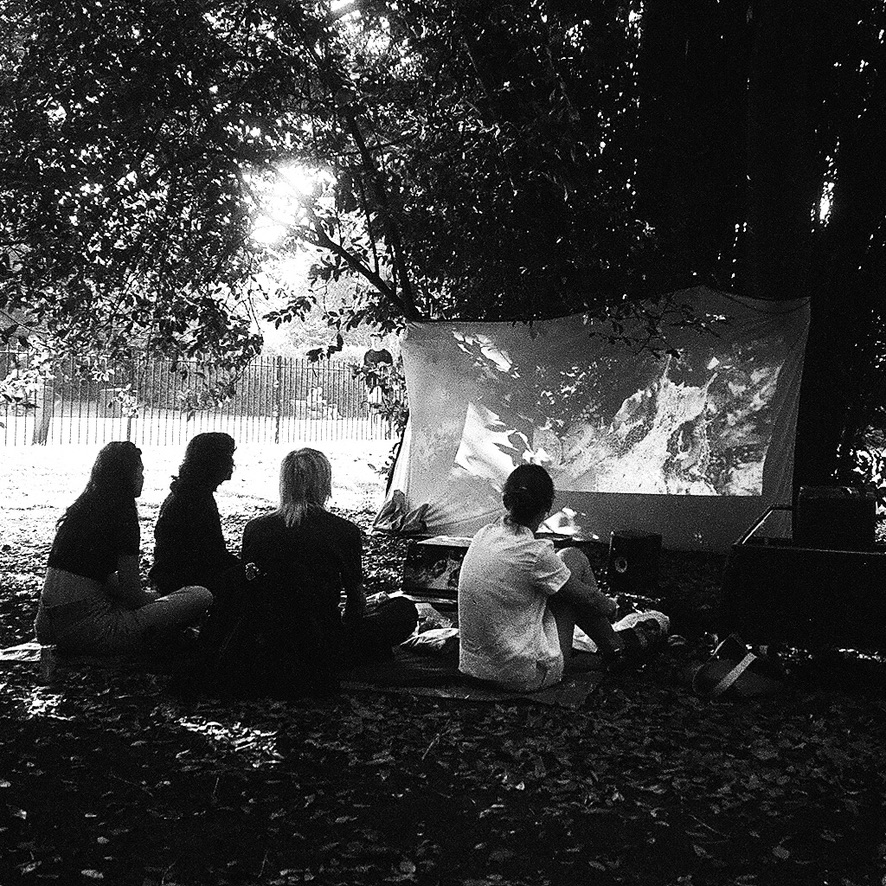OCTOPUSSY: FULL PROJECT
Octopussy: Cellular Lingerie
MA Biodesign, Graduate Showcase
2021
Octopussy explores the convergence of meat and culture through the life and lens of an octopus.
Investigating three means of meat production – wild fishing, aquaculture, and cellular culture – Octopussy considers their respective animal and ecological ethics.
During the latter process, I fashion edible cellular lingerie: a prop for igniting curiosity and conversation around society’s fetishisation of technological solutions to innumerable ecological crises. Our desire to do this is explored in my short documentary with interviews from key figures of the cultured meat debate.
Selected for LCC’s Graduate Collections for Cross Disciplinary Collaboration across UAL
Tentacular Thinking | Cell Culture | Consumer Culture | Ecological Ethics | Discursive Design
OCTOPUSSY
click image to watch trailer

Microscopic picture of an octopus paralarvae, x10 mag
‘‘Biotech is often portrayed as the business that will heal, fuel and feed the world. It marries free enterprise with the pursuit of knowledge. And with a twist of its fiscal hand, it conjures visions of profitability and a beneficent new order, engendering curiosity, corrections and cures. But darkness lurks at its edges. In the shadows are those who practice the arcane arts of deception, bewitchment and false promise.’’
- Rogers, 2016. When Biotech Goes Bad
About the project
Octopuses have captured human imaginations for millennia, with many cultures associating this poly-morphological, eight-armed invertebrate into the embodiment of what is intrinsically monstrous, erotic and ravenous.
Exploring human-octopus ‘cultures’ of the past, present, and future, my project critically analyses the manifestation of meat, in relation to culture. In the laboratory at CSM, I explore an alternative sustainable source of meat: cell cultured octopus. Upon familiarising myself with this industry and learning what it entails, I became aware that the ethics of even this biodesign agenda are disputable.
Admitting the octopus’ inevitable inter-tanglement with subcultural sinful pleasures: dark and weird, but highly popular and fetishised, I fashioned edible, cellular lingerie. Erotic and over-excessive. It is not a product for mass-consumption. Rather, a prop for igniting curiosity and conversation around society’s fetishisation of technological solutions to innumerable ecological crises. Our desire to do this is explored in my short documentary with interviews from key figures of the cultured meat debate.
Living systems
Galicia, Spain
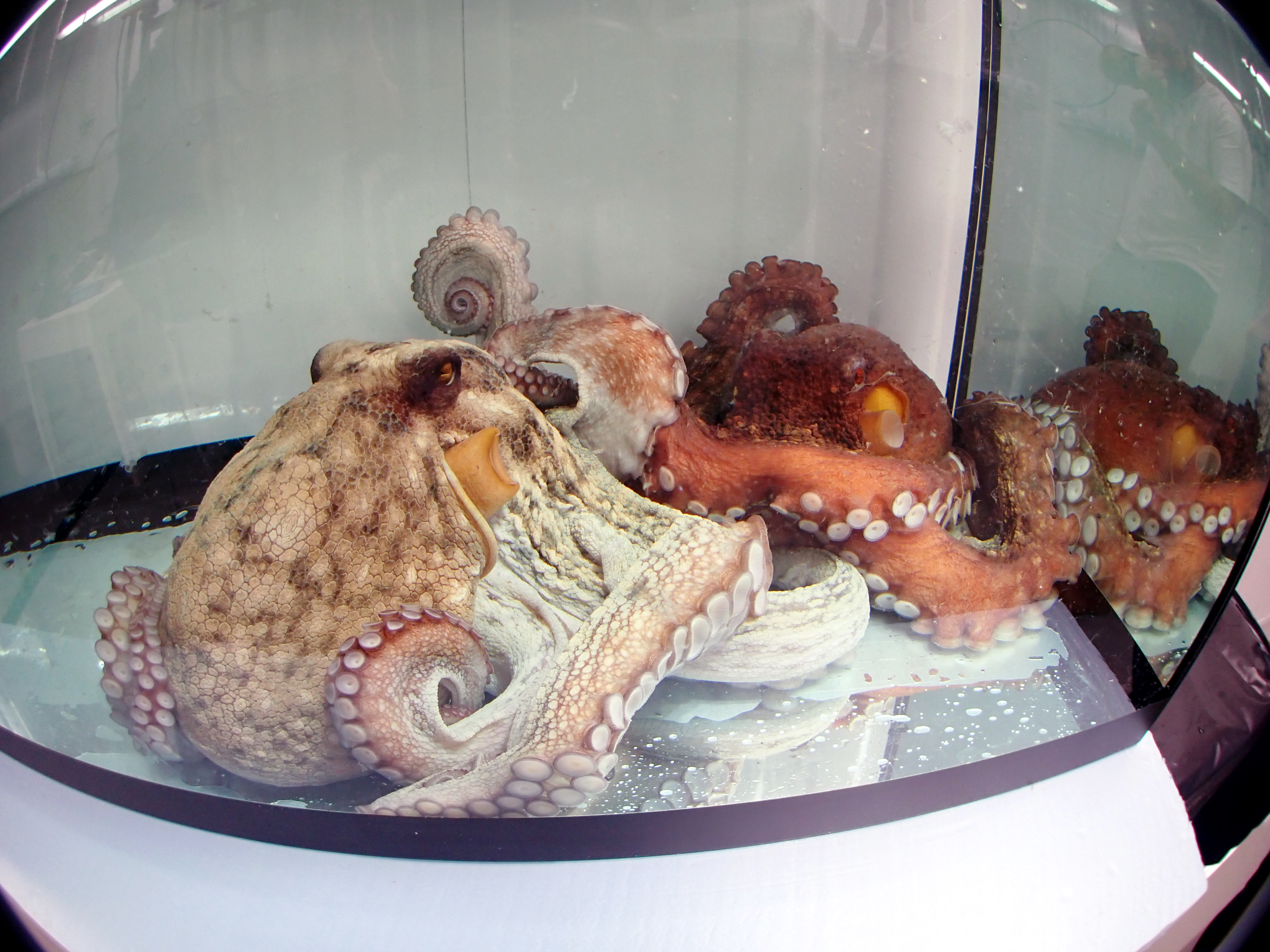 Breeding octopuses at Pescanova’s
Breeding octopuses at Pescanova’sBiomarine Aquaculture Facility
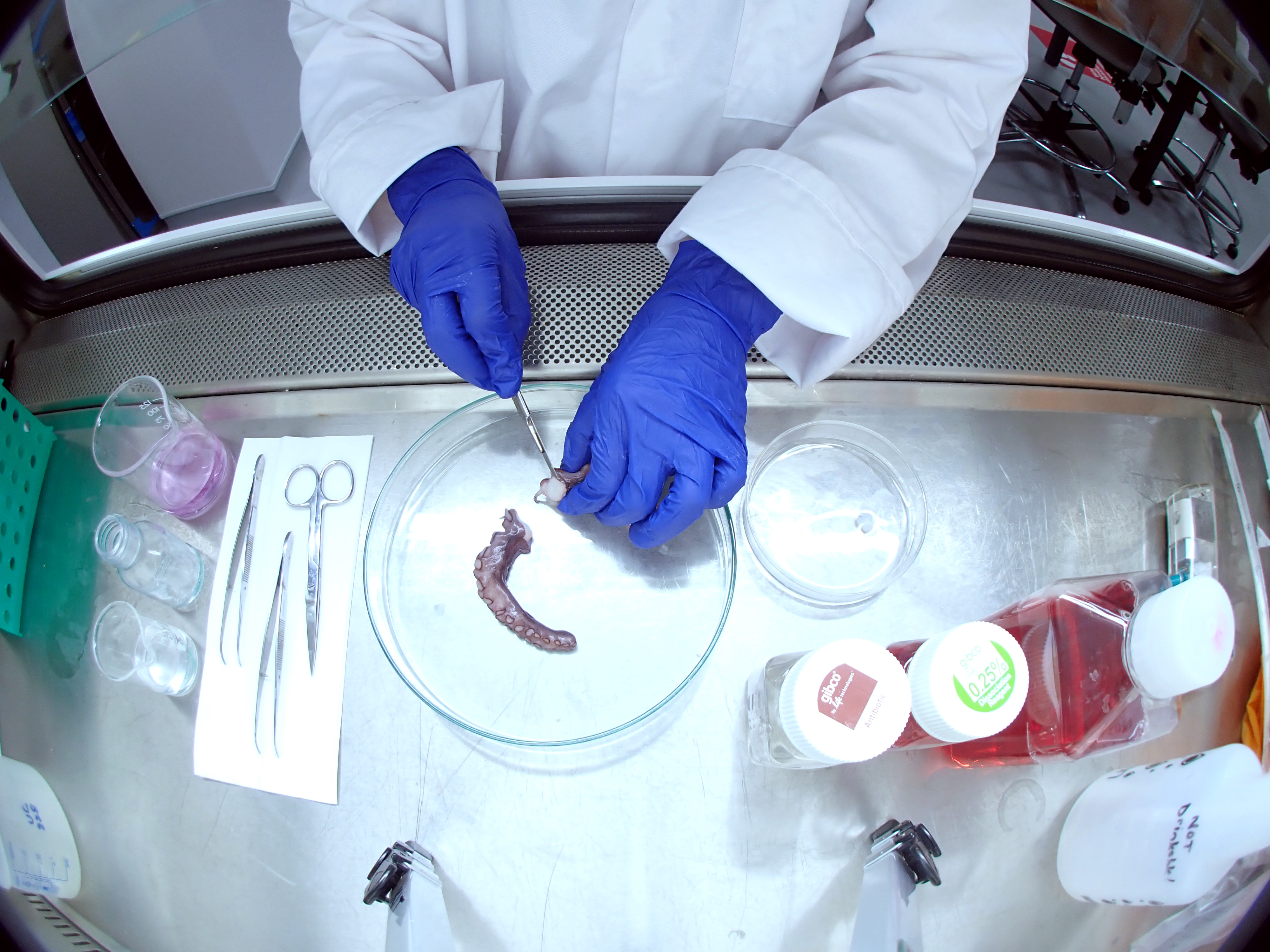 Octopus biopsy to retrieve muscle cells for culture
Octopus biopsy to retrieve muscle cells for cultureIn this project I work both in situ and ex situ. My research in Part I takes me to Galicia, Europe’s understated octopus hub where I draw from research conducted underwater, with octopuses living in their natural habitat. In Part II, I collaborate with the Pescanova research team to examine octopus paralarvae—born and bred in their land-based aquaculture facility. In Part III, I transition to the lab, working with ‘semi-living, decontextualised’ (Catts, 2015) muscle cells. As we move further from the oceans, the route from net to plate becomes increasingly more mechanised and obscure. These interactions were documented audio-visually and accompanied by written reflections, reflecting my feminist, embodied ethnographic approach.

C2C12 muscle cells
x20

Cell growth on biodegradable fishnet scaffold
x20

Cells in trypsin whilst passaging cells
x20
Design process
Like wild octopuses seeking refuge in the ‘nasas’ (traps) designed to capture, the muscle cells do the same in a biodegradable, fishnet growth scaffold. In order to shift from designing at a micro scale to a wearable scale, the surplus cells that otherwise would have been discarded were laced into an edible bioleather material and crafted into the cellular lingerie.
Made with cell cultured meat, infused with cultured oysters for an extra aphrodisiac quality, this edible cellular lingerie is excessive, erotic, and exotic: a feast for the eyes, and a feast for the mouth.
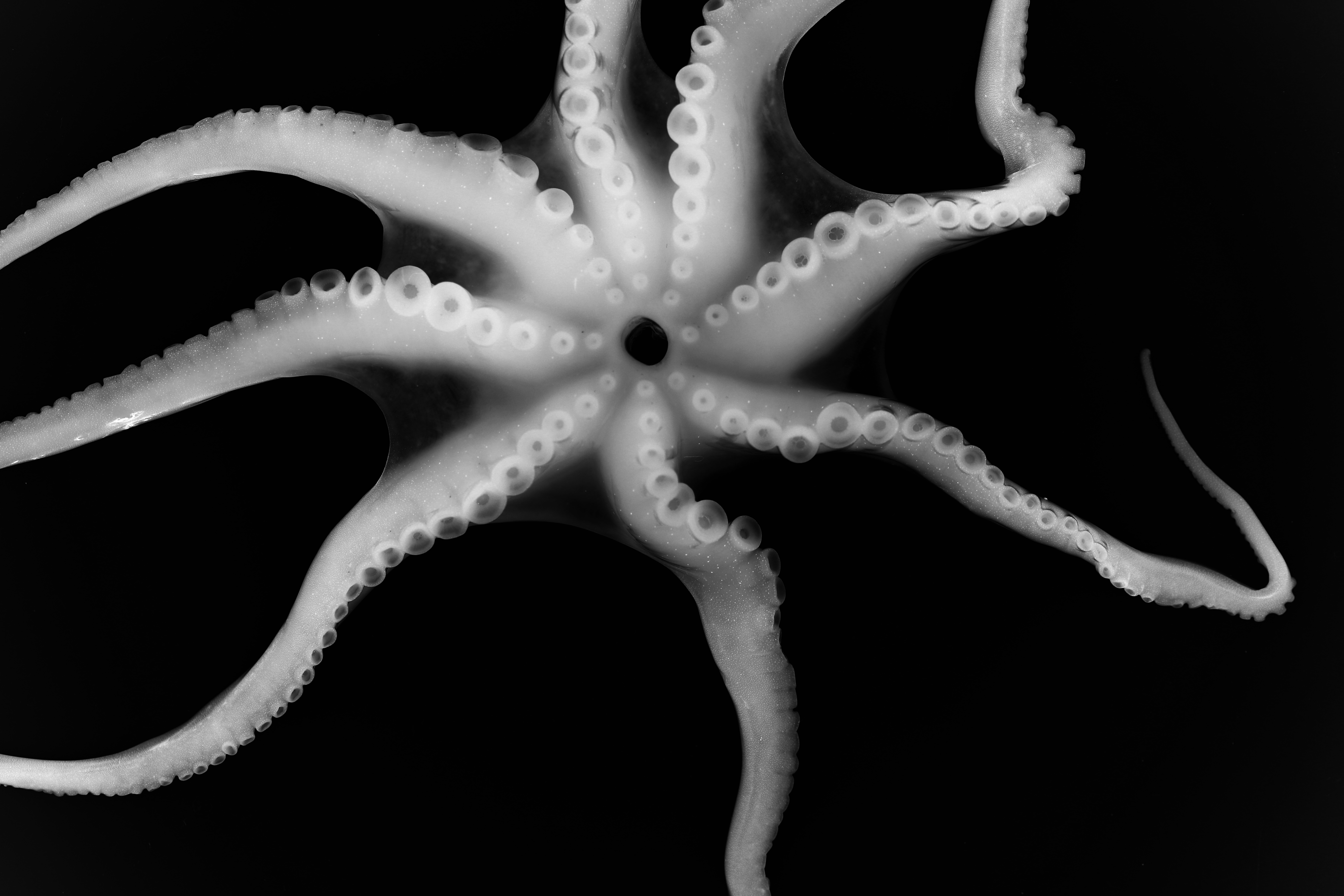

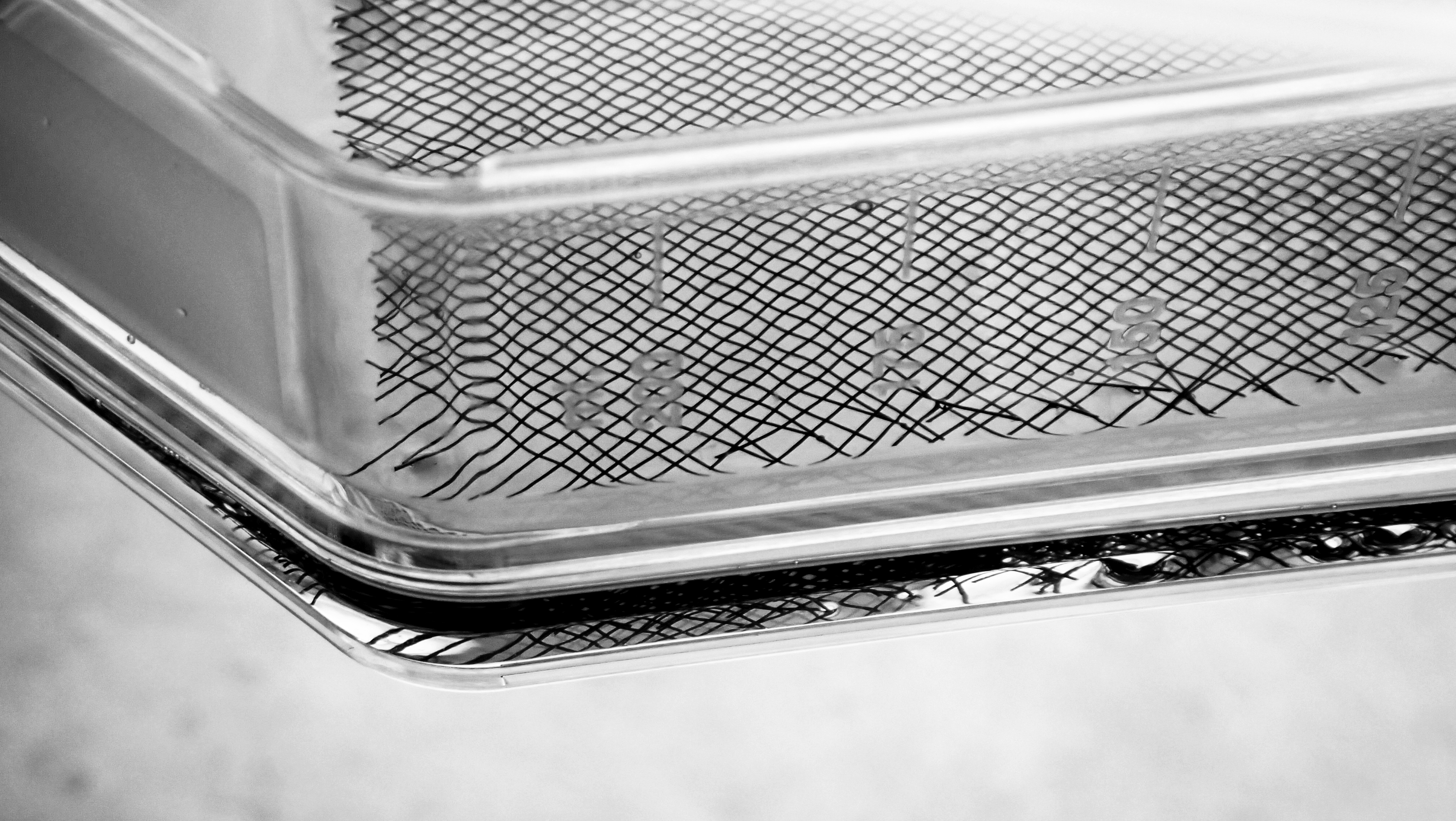



Inspired by the performative presence of octopuses and the "theatre of start-up and extractive economy" (Catts 2021) that dominates cell cultured meat technologies, this contestable design is exhibited as a performance: condensing science and surrealism, engaging in symbolism and spectacle.
Fieldwork
Part I: Diving & Fishing (Wild Culture)
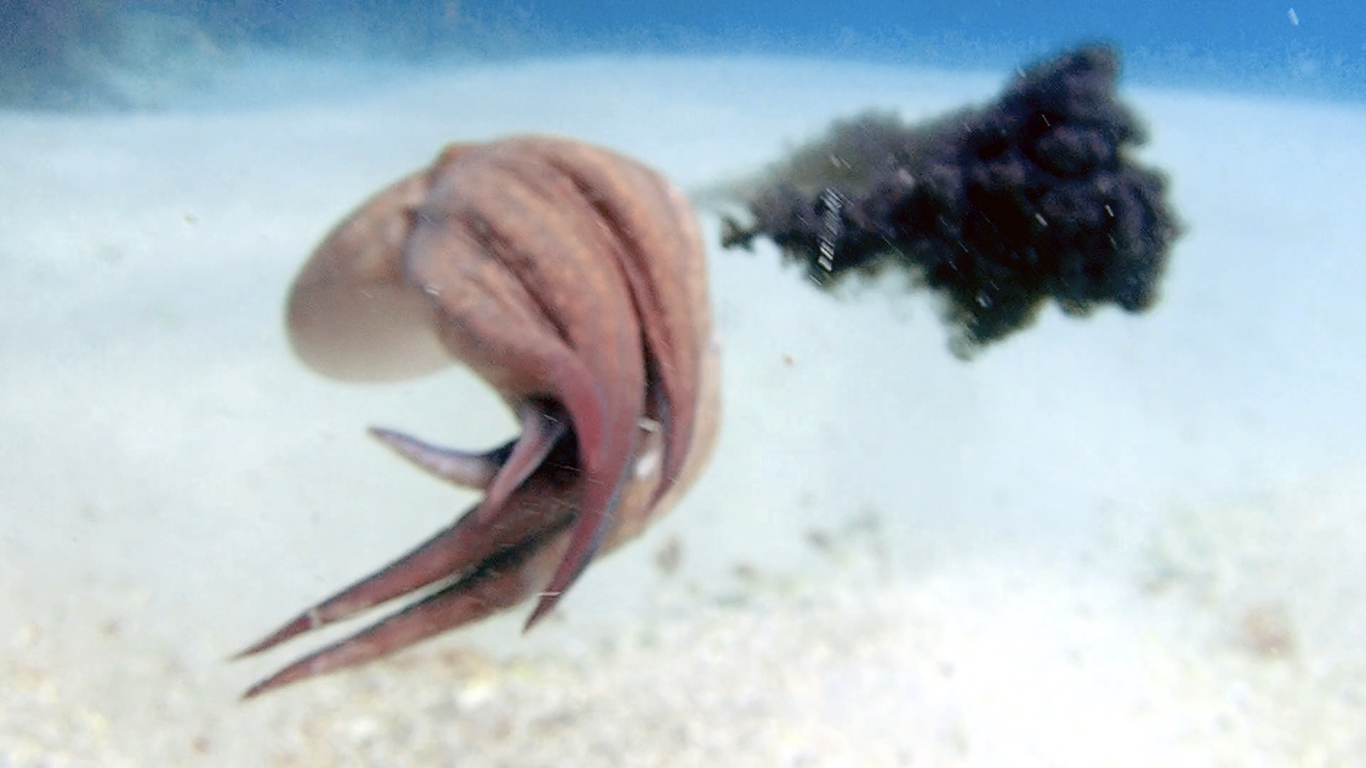
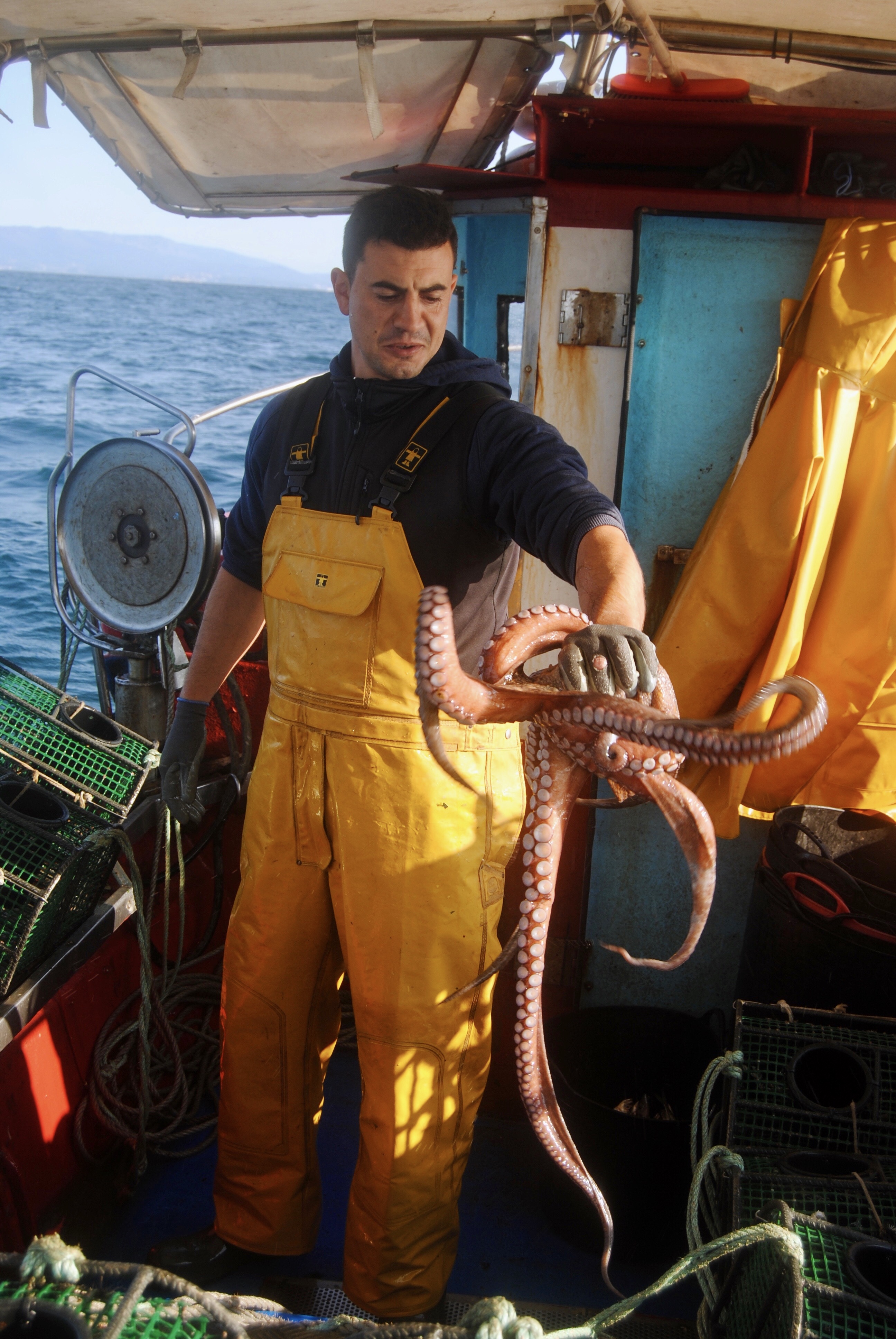


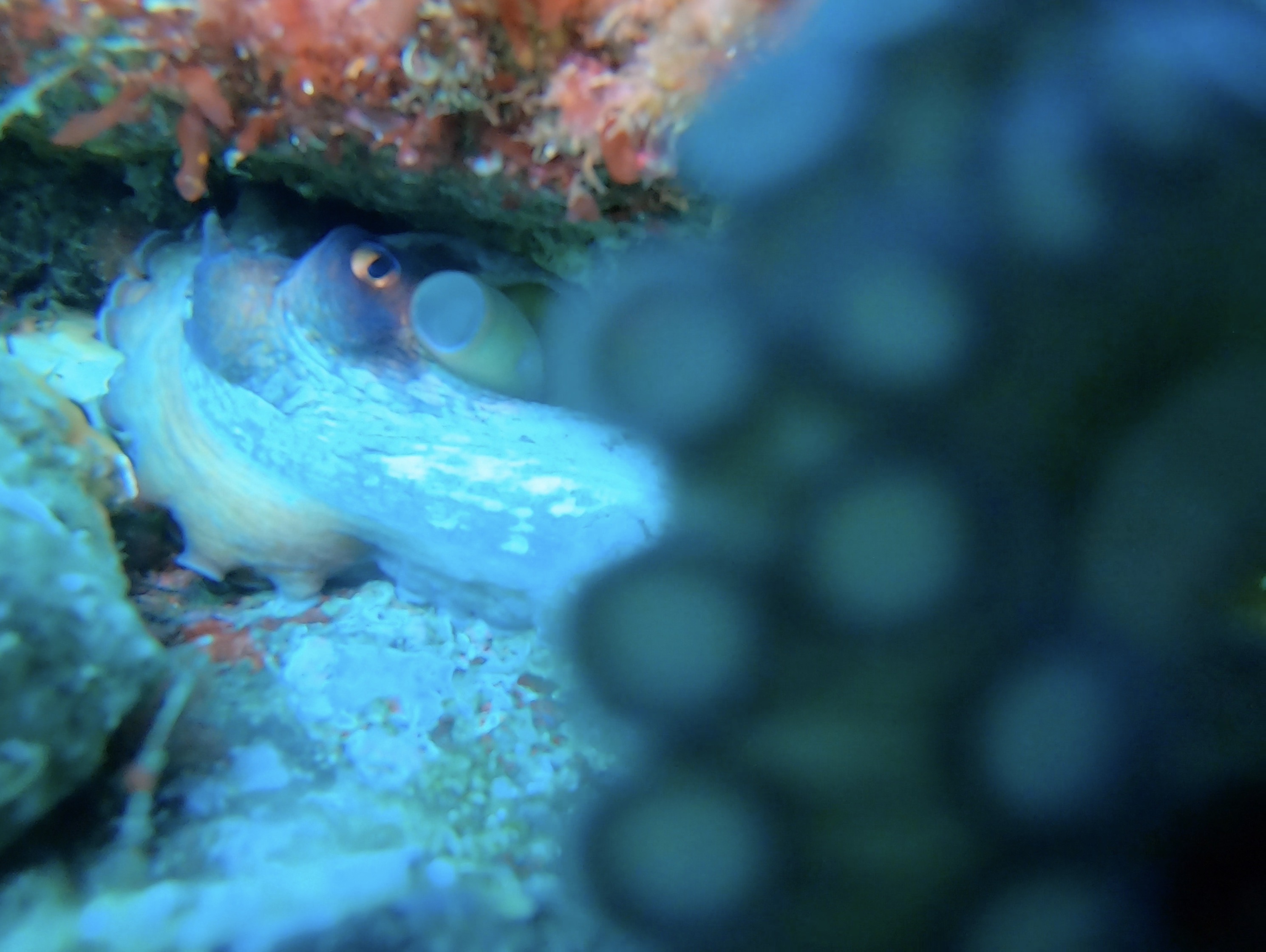
Part II: Pescanova Biomarine Centre | Octopus Breeding Programme (Aquaculture)
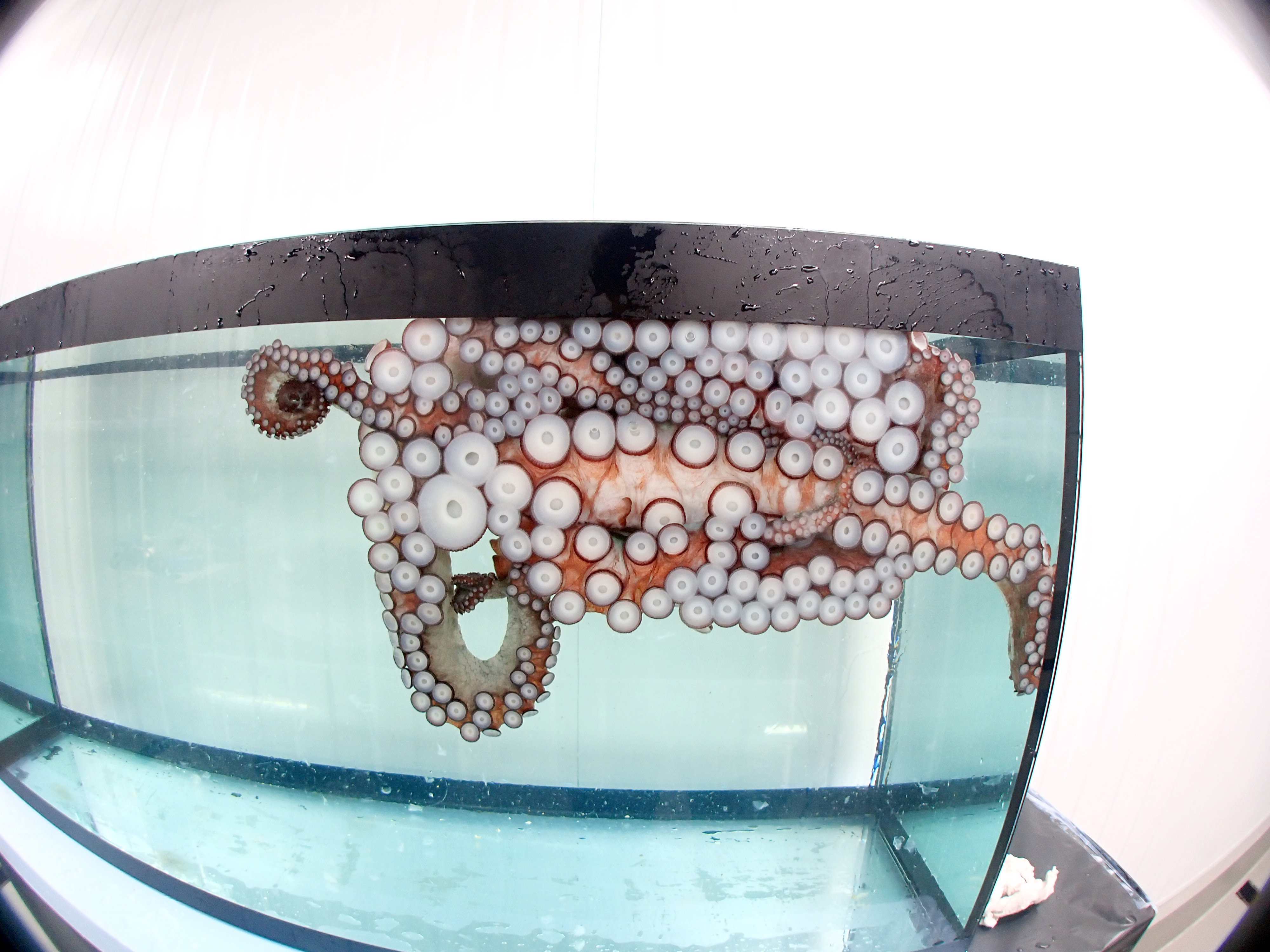

Part III: Grow Lab at Central Saint Martins (Cellular Culture)

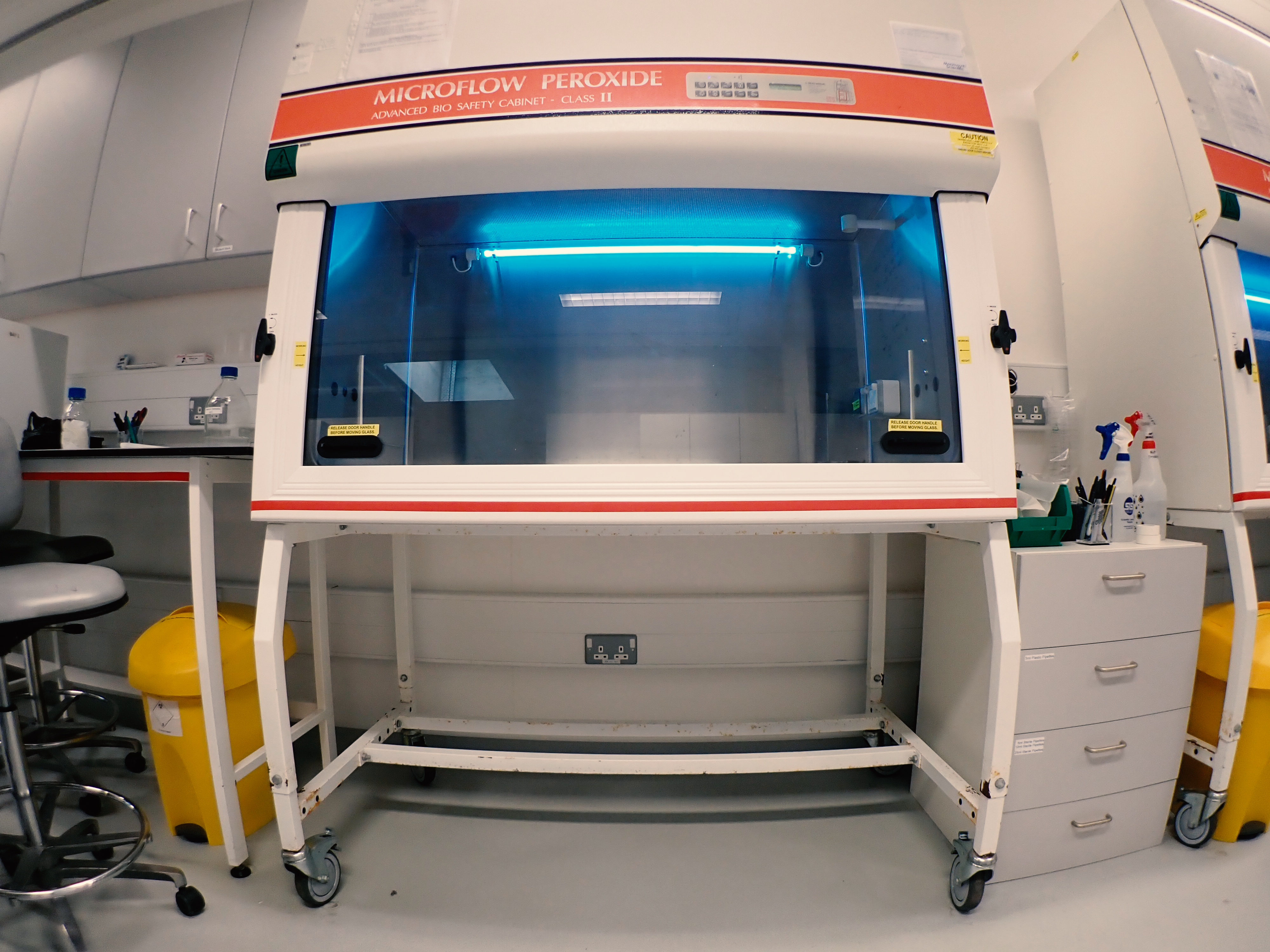




RECIPE
57ml olive oil
109g gelatin
35g agar agar
250ml glycerol
250ml water
5ml ink
10g activated charcoal
pinch of salt
1 vial cultured muscle cells
57ml olive oil
109g gelatin
35g agar agar
250ml glycerol
250ml water
5ml ink
10g activated charcoal
pinch of salt
1 vial cultured muscle cells
Interviewees
Oron Catts, artist, scientist, & philosopher. SymbioticA
Shem Johnson, Grow Lab specialist, Central Saint Martins
Jenny Kleeman, journalist & author. Sex Robots & Vegan Meat
Diego Santos Parada, octopus fisherman. O Grove, Galicia
Adam Shaw, fishmonger & fisherman. Something Fishy, Chichester
Ricardo Tur, marine biologist & lead aquaculturist: Pescanova Biomarine Centre
Collaborators
Sound Design: Lauren Nasrallah, London College of Communication
Narrative Editors: Alexandra Zarins Rolls & Lily Redpath
Shoot Co-director: Tate Turnbull
Model: Spencer Grimshaw
Oron Catts, artist, scientist, & philosopher. SymbioticA
Shem Johnson, Grow Lab specialist, Central Saint Martins
Jenny Kleeman, journalist & author. Sex Robots & Vegan Meat
Diego Santos Parada, octopus fisherman. O Grove, Galicia
Adam Shaw, fishmonger & fisherman. Something Fishy, Chichester
Ricardo Tur, marine biologist & lead aquaculturist: Pescanova Biomarine Centre
Collaborators
Sound Design: Lauren Nasrallah, London College of Communication
Narrative Editors: Alexandra Zarins Rolls & Lily Redpath
Shoot Co-director: Tate Turnbull
Model: Spencer Grimshaw
Many Thanks



Many thanks to Antonio Larrauri for the incredible diving experiences. To Ricardo Tur (2) of the Pescanova Biomarine Facility, for helping me to become fully immersed in the octopus aquaculture world. To Diego (1) and Ricardo for the early morning fishing trips. To Oron Catts (3), for your eloquent thoughts and writings on cultured meat. To Victoria Geaney for your time and direction. To all my interviewees. And to Paula for showing me Galicia, her home.
Reading List
Catts, O. & Zurr, I. (n.d). Partial Life
Haraway, D. J. (2016). Tentacular Thinking: Anthropocene, Capitalocene, Chthulucene
Hayward, E. (2019). OctoEyes.
Kleeman, J. (2020). Sex Robots & Vegan Meat
Morton, T. (2018). Dark Ecology
Reading List
Catts, O. & Zurr, I. (n.d). Partial Life
Haraway, D. J. (2016). Tentacular Thinking: Anthropocene, Capitalocene, Chthulucene
Hayward, E. (2019). OctoEyes.
Kleeman, J. (2020). Sex Robots & Vegan Meat
Morton, T. (2018). Dark Ecology
︎ MA Biodesign – Octopussy
Octopussy Screenings
Wales | London
2021


